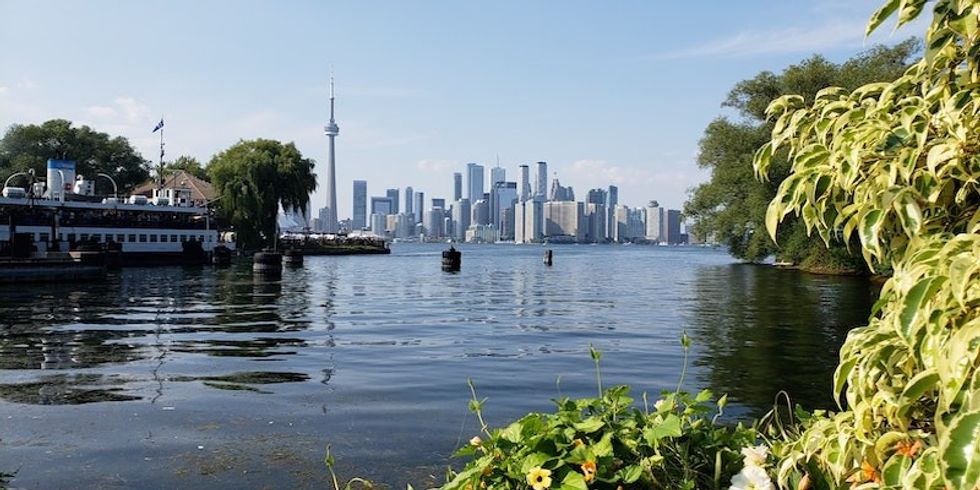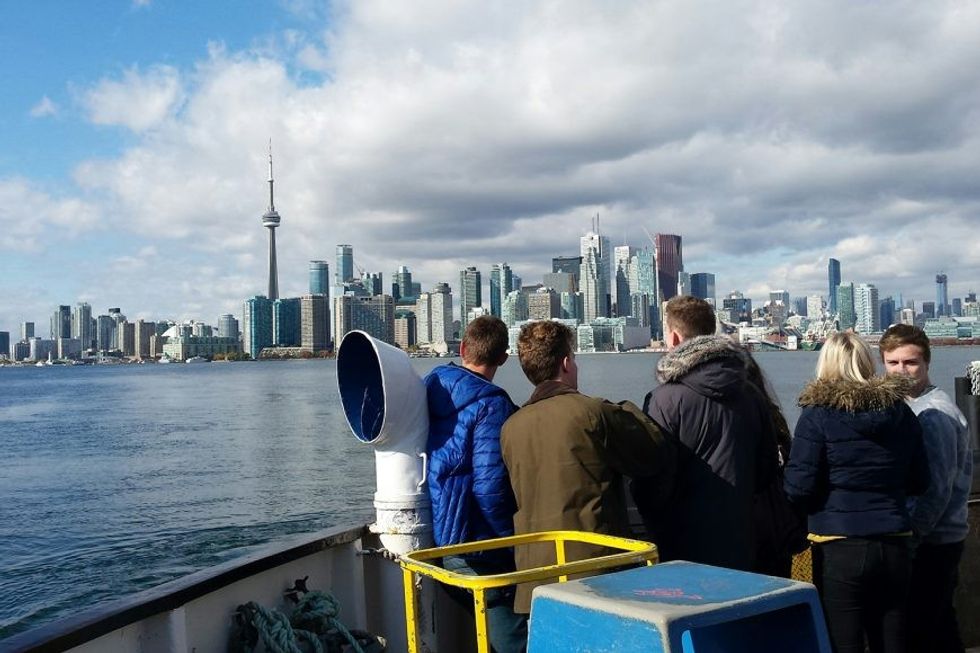It looks like Toronto is following through with its plans to put a fancy new fleet of ferries on the water.
On Friday, a new City of Toronto report officially recommended replacing the city’s current aging (but oh-so-nostalgic) ferry vessels with a fully electric variety.
The report -- submitted by City staff in Parks, Forestry and Recreation (PFR) -- will be considered by the General Government and Licensing Committee (GGLC) on January 14.
The breezy and view-filled Toronto Island Park is currently served by a ferry fleet of four primary vessels and one heritage vessel, which together transport over 1.4 million passengers and 5,000 vehicles annually to Toronto’s largest park. Although well-maintained and undoubtedly charming, the vessels are between 50 to 100 years old, well beyond the industry average lifespan for similar ferries.
The report recommends a plan to replace four existing primary ferries over a 15-year period. The initial ferry replacement strategy proposed a hybrid diesel-electric technology.
New Ferries Will Help With Crowd Control, Green Emissions
As sad as we are to see the ferries go (and with them, a piece of our childhood), the move is a necessary one -- both in terms of the environment and Toronto’s growing population.
It’s safe to say accessing the island hasn’t exactly been smooth sailing since the onset of the pandemic. Getting to the island became a logistical nightmare on more than one summer weekend when masses of Toronto Islands goers found themselves in lineups that were hundreds upon hundreds of people deep for water taxis because the ferries couldn’t handle the volume.
While the situation was undoubtedly compounded by the pandemic -- reflected in everything from capacity and schedule restrictions on the ferries to countless stir-crazy residents -- getting to and from the beloved Toronto Islands at prime times has been an issue for years.
In addition to improving logistics, the shift to full electrification also supports the City’s TransformTO Net Zero Strategy and commitment to accelerate climate action to achieve net zero city-wide greenhouse gas emissions by 2040. In particular, this initiative aligns with the target of transitioning 20% of the City fleet to zero emissions by 2025 and 50% by 2030.
“I support the full electrification of our future ferry fleet. This is the right thing to do for the environment and it is an investment that will ultimately save the City government money,” said Mayor John Tory. “This is one example of how we are successfully implementing the City’s TransformTO Net Zero Strategy and honouring our commitment to accelerate climate action to achieve net zero city-wide greenhouse gas emissions.”

Full electrification of the vessel fleet is estimated to reduce 2,800 tonnes of greenhouse gas (GHG) emissions annually, which is equivalent to removing 600 cars from the road every year. In addition, displacing diesel fumes, which contribute to air and noise pollution, will provide an improved ridership experience for those visiting Toronto Island.
New Fleet to Save $1.1 Million Annually
In terms of looking ahead, the report recommends an increase in funding for the additional design and construction of support services required to advance a fully electric design for the ferries and the required shore-side infrastructure. This change, once the full fleet is replaced, will lead to annual savings of up to $1.1 million, according to the report. The projected payback on full electrification would be within 20 years.
"The City's commitment to TransformTO combined with comparable costing for both vessel types, evolving industry trends and available technologies, fleet replacement approaches being undertaken in other jurisdictions and long-term operational savings (fuel cost savings in particular), all reinforce the upfront transition to fully electric ferries," said the City in a press release.
Although further cost estimates will be undertaken as the project advances, current estimates for the completed designs range between $23 and $25 million per vessel. The cost for the fully electric vessels is comparable to hybrid vessels and they will have increased passenger capacity. Additional costs for shore-side infrastructure will be required.
However, with the undeniable benefit the shiny new fleet will offer Toronto residents and visitors, there likely won't be too much opposition to riding the all-electric wave over to the island and into the future.






















